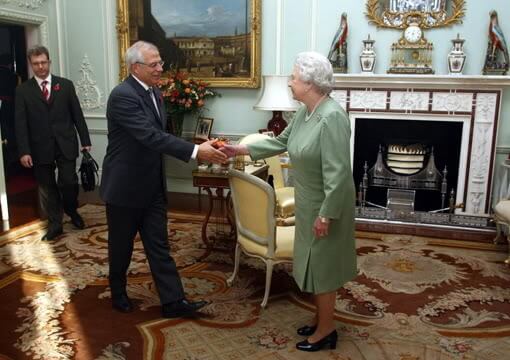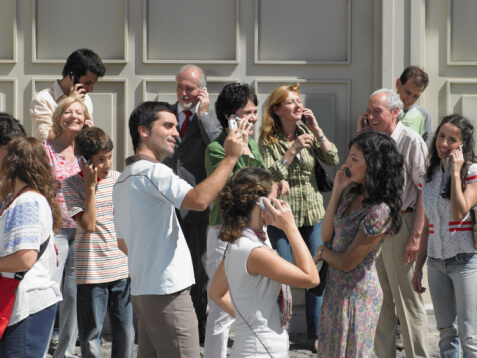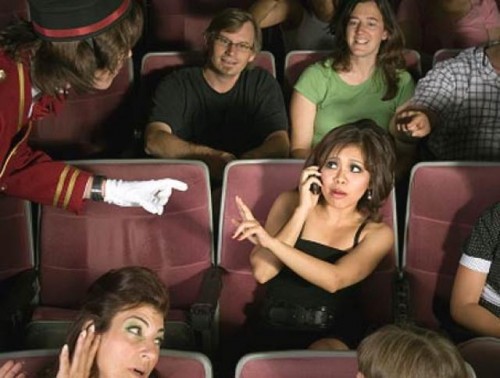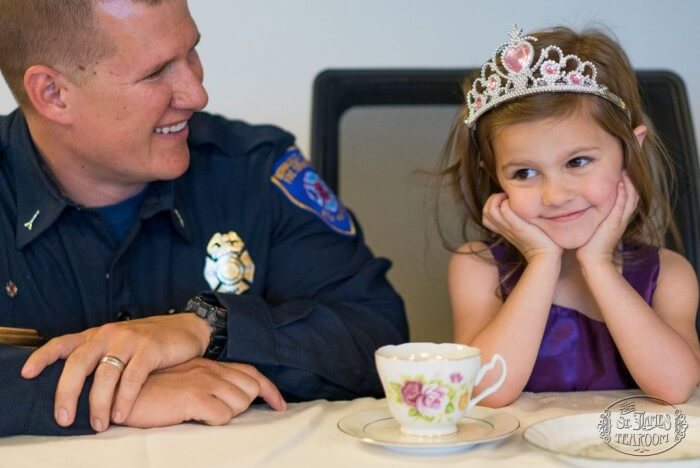
Cell Phone Etiquette: “You Are Not the Only One”
Let me tell you a true story. It was reported on Good Morning, America.
 It seems a young woman had been invited to have tea with Queen Elizabeth II in the Buckingham Palace gardens. She was actually sitting with the Queen enjoying her tea and their conversation when her cell phone started ringing. She looked at her purse in horror: yes, the sound was coming from her bag! The Queen leaned near and casually said, “Maybe you should get it. It might be someone important.”
It seems a young woman had been invited to have tea with Queen Elizabeth II in the Buckingham Palace gardens. She was actually sitting with the Queen enjoying her tea and their conversation when her cell phone started ringing. She looked at her purse in horror: yes, the sound was coming from her bag! The Queen leaned near and casually said, “Maybe you should get it. It might be someone important.”
Can you imagine the humiliation? Queen Elizabeth IS ‘someone important!’
But if we really think about this, we must ask ourselves the basic, but vital question, ‘Who IS important?’ What about our husband or wife, sitting across the table from us – are they not ‘someone important’? What about the people standing right next to us at the ticket counter? The salesman at Home Depot who is trying to help us with hardware? How ‘important’ does a person have to be before we are courteous to them?
 This true story not only goes to the very heart of the matter of cell phone etiquette, but also to the very essence of COURTESY itself. Etiquette is based on courtesy, and courtesy is based on the belief that each person is important – important enough to be considered, important enough to inconvenience ourselves, important enough to exercise self-restraint. This principle determines a savage or a civilized society – how is the individual treated? We speak of civilization, civil rights, civility, gentility, and courtesy. These concepts all are based on the idea of the importance of the individual, and they lead to social order. The ideas of ‘courtesy’ and ‘self-centeredness’ are antithetical. Courtesy, by its very nature is others-centered. We are not the only one!
This true story not only goes to the very heart of the matter of cell phone etiquette, but also to the very essence of COURTESY itself. Etiquette is based on courtesy, and courtesy is based on the belief that each person is important – important enough to be considered, important enough to inconvenience ourselves, important enough to exercise self-restraint. This principle determines a savage or a civilized society – how is the individual treated? We speak of civilization, civil rights, civility, gentility, and courtesy. These concepts all are based on the idea of the importance of the individual, and they lead to social order. The ideas of ‘courtesy’ and ‘self-centeredness’ are antithetical. Courtesy, by its very nature is others-centered. We are not the only one!
Do we dare apply this principle, not only broadly, to society at large, but also to our moment-by-moment, daily grind and interaction with others, such as the use of cell phones or putting our grocery carts back in their corrals? This nitty-gritty application, of course, is what makes our society either civilized, or not. And the heart of it goes beyond recognizing a fish fork or knowing when to remove our gloves. The heart of the matter revolves around the importance we place on those around us.
Let’s apply it to cell phones. This is a new and emerging part of that fluid thing we call ‘etiquette.’ Cell phones are relatively new and have arrived with such velocity and such ferocity that we don’t seem to know yet how to control them. But controlled they must be in civil society.
If the first thing we should consider is the individual around us, he or she; are they ‘someone important’? If we are to consider ourselves courteous, they should be. Make sure you have voice mail for your mobile phone and turn your ringer off. Using voicemail and the vibrate setting is a first step when we are in company. You can check your messages as often as you like.
It is incredibly rude to take a call while interacting with another person, whether having dinner together at a restaurant, walking along the street in conversation, having a business meeting, or getting help from a store clerk. When you take a call while interacting with another person, you are saying, loudly and clearly, “This interaction is not important to me. I have much more important things to do and people to talk to than you!” If the call is that important, say, you are waiting to hear the outcome of your mother’s surgery, then ask the indulgence of those around you. “Please excuse me. I must take this call. It should be the hospital.” Then remove yourself from their immediate presence, turn your back, and speak quietly into the phone.
 It is also terribly rude to inflict your one-way conversation on those around you. How many times have you been waiting in the airport, trying to concentrate on your book while the man across from you is expounding on and on about his employer’s incompetence, or his wife’s infidelities, or his child’s report card? I really don’t want to know. I prefer to be left in ignorance on those subjects and enjoy my book, or my own thoughts.
It is also terribly rude to inflict your one-way conversation on those around you. How many times have you been waiting in the airport, trying to concentrate on your book while the man across from you is expounding on and on about his employer’s incompetence, or his wife’s infidelities, or his child’s report card? I really don’t want to know. I prefer to be left in ignorance on those subjects and enjoy my book, or my own thoughts.
It should remain without saying, but I fear it does need to be said, that unless you are on a break at your job, you should not be taking your employer’s time on personal phone calls. All things in their place. Be considerate, also, when you are making a call to someone who is at work; you may be causing them to make others waste their work time while waiting for your call to finish.
A mobile phone ringing in a church service, during a symphony, wedding, or other public gathering is a terrible affront.
 If the phone call you receive is important enough to leave your place in line waiting for your boarding pass at the gate of Southwest Airlines, then you may take the call, but you should leave the line, losing your place, find a quiet spot where you won’t be disturbing others. There ARE emergencies, and these can be understood. Many conversations we are forced to endure, however, are mundane, common, or even superfluous.
If the phone call you receive is important enough to leave your place in line waiting for your boarding pass at the gate of Southwest Airlines, then you may take the call, but you should leave the line, losing your place, find a quiet spot where you won’t be disturbing others. There ARE emergencies, and these can be understood. Many conversations we are forced to endure, however, are mundane, common, or even superfluous.
Recently, as I was shopping in a grocery store, a man came right up behind me and said in a loud voice, “Idiot!” Surprised, I turned around to face my accuser. He was having an animated discussion with someone else and didn’t even see me. Disconcerting, to say the least!
I’m sure you could supply me with many horror stories. I have some of my own. One evening at a local restaurant I observed a mother talking on her mobile phone throughout this family’s entire meal, as her husband and two children tried to enjoy their dinner, in her presence, yet alone. At one point, she leaned over and shushed them! They were interrupting her conversation! A slap in their faces could not have been more demeaning.
 Alas, we must endure the onslaught until it is controlled. But how to control the beast? The St. James Tearoom has small notices that read, “In the interest of the other guests, please refrain from using your mobile phone in the tearoom.” Many of our customers thank us for this. You may have have your own ways of controlling the beast. (I do have one more true story: someone’s phone started ringing during the service at a friend’s church – the ring was the tune ‘When the saints come marching in’, at which, within the blink of an eye, the entire congregation joined in, singing along….)
Alas, we must endure the onslaught until it is controlled. But how to control the beast? The St. James Tearoom has small notices that read, “In the interest of the other guests, please refrain from using your mobile phone in the tearoom.” Many of our customers thank us for this. You may have have your own ways of controlling the beast. (I do have one more true story: someone’s phone started ringing during the service at a friend’s church – the ring was the tune ‘When the saints come marching in’, at which, within the blink of an eye, the entire congregation joined in, singing along….)
Nice Date?
The next time you hear someone’s mobile phone ringing, think of Queen Elizabeth, and remember who is ‘someone important.’
Yours for Grace, Beauty, Gentility, Civility, and Excellence,
Mary Alice Higbie






